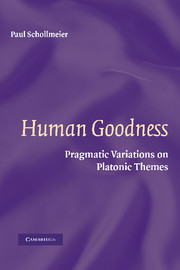4 - Moral Freedoms
Published online by Cambridge University Press: 28 July 2009
Summary
1. Have you ever wondered how really and truly free we are? Perhaps I should ask who has not. I first pondered the question with some classmates in grade school. The conundrum then was, Could 10,000 monkeys poking away at 10,000 typewriters eventually produce The Complete Works of Shakespeare? The question appears even more acute today with the advent of electronic computers. The odds on the side of the monkeys would seem greater than ever. We might thus catch ourselves still pondering the question at odd moments of metaphysical malaise. Could the monks actually do it? Or could the computers do it for them?
We Americans feel so strongly that the human spirit must be free that the question might seem all but moot for us. Our attitude may not be entirely atypical of those who inhabit the contemporary world. We have enshrined liberty in our political constitutions, and we continue to advocate new liberties for various and sundry groups within our society. Liberation movements take up the cause of any individuals thought to be unfairly fettered in any imagined manner. The word “liberty” is the byword of the day for liberals and libertarians alike.
Yet when I look around, I cannot but wonder, Is our spirit truly so free? Who could fail to notice so many lives that appear neither to express human dignity nor to enjoy its fruits?
- Type
- Chapter
- Information
- Human GoodnessPragmatic Variations on Platonic Themes, pp. 114 - 151Publisher: Cambridge University PressPrint publication year: 2006



